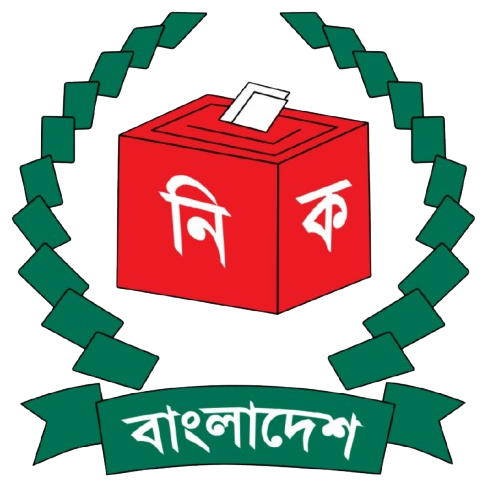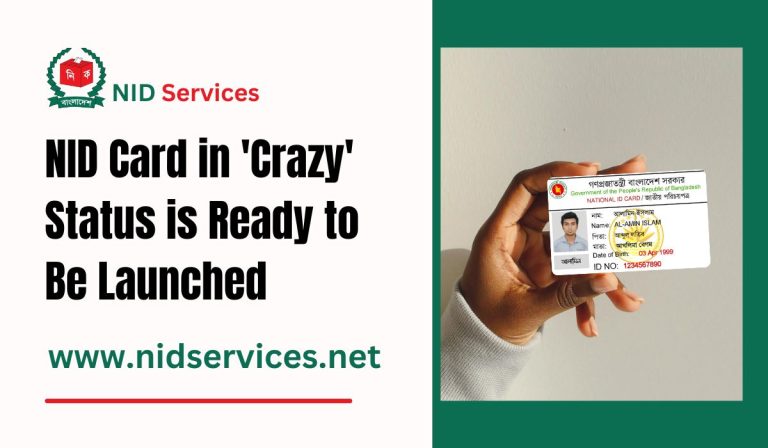For Those Who Have Not Received a Smart Card Know When and How to Get It

For Those Who Have Not Received a Smart Card Know When and How to Get It. For those who have yet to receive their National ID (NID) Smart Card, understanding the process and the reasons for delays is crucial. The Smart Card, which includes biometric data such as ten fingerprints and iris scans, is essential for secure identification.
Despite proper voter registration, many individuals have not yet received their Smart Cards. This article will delve into the reasons for these delays, the steps to obtain a Smart Card, and the procedures for checking your card status online or via SMS.
Smart Card Issuance Process
Currently, there are approximately 75 million voters who have not received their Smart Cards. The main reasons behind this delay are logistical and technical challenges. This comprehensive guide aims to address these issues and provide actionable steps for voters.
Voters Registered Before 2016
Before 2016, the government only issued laminated ID cards, and the collection of comprehensive biometric data—such as fingerprints, iris scans, and blood group—was not mandatory. Consequently, many individuals who registered as voters before this period do not have the necessary data in the system to generate a Smart Card.
How to Obtain a Smart Card
- Contact the Upazila Election Office: If you urgently need a Smart Card, visit your local Upazila Election Office. They can provide guidance on updating your biometric data.
- National Identity Card Division, Agargaon, Dhaka: For those unable to resolve their issue locally, you can apply directly at the National Identity Card Division in Agargaon, Dhaka. Ensure you have all required information, including your NID number and any missing biometric data.
Voters Registered After 2016
Voters registered after 2016 generally have their biometric data recorded and are eligible for Smart Cards. However, delays can still occur due to two primary issues:
- Incomplete or Incorrect Information: Errors or omissions in voter information—such as missing blood group data—can prevent the issuance of a Smart Card. These issues need to be rectified at the Upazila Election Office.
- Technical and Production Constraints: Due to limited capacity and technical issues, the printing and distribution of Smart Cards have slowed. Even though the government aimed to provide Smart Cards to all eligible voters by 2016, resource constraints have hindered this process.
How to Check Your Smart Card Status
If you are uncertain about the status of your Smart Card, you can easily check it online or via SMS.
Online Status Check:
- Visit the official NID website.
- Enter your NID or Form Number along with your Date of Birth.
- Complete the CAPTCHA and click on the ‘Submit’ button to view your Smart Card status.
SMS Status Check:
- To check via SMS, type
SC NID <Your-NID-No>and send it to105. You will receive an SMS with your Smart Card status. - Alternatively, if you have a Form Number, type
SC F <Form-No> D <Date-of-Birth>and send it to105for status updates.
What to Do If You Haven’t Received Your Smart Card
If you have not received your Smart Card, there are a few steps you can take:
- Download a Laminated NID Card: For new voters who have not yet received their Smart Cards, a laminated version of the NID can be downloaded and used for all identification purposes.
- Request a Reissue: For older voters who did not receive either a Smart Card or a laminated ID, you can apply for a reissue at your Upazila Election Office. You will need to provide your NID number and pay a fee via BKash after reporting the loss or damage of your original card.
- Correct Missing Information: If your Smart Card has not been issued due to missing data like fingerprints or iris scans, visit the Upazila Election Office to update your information. This step is crucial for the issuance of your Smart Card.
Urgent Need for a Smart Card?
For those who require a Smart Card on an urgent basis, the best approach is to visit your local Upazila Election Office. They can provide information on any missing data, such as biometric information or blood group, and guide you through the process of updating your information. Once all required data is in the system, your application for a Smart Card can proceed more smoothly.
Challenges in Smart Card Distribution
The distribution of Smart Cards has faced numerous challenges, including:
- Technical Issues: The process requires sophisticated technology for capturing and printing biometric data. Any malfunction or shortage of these resources can cause significant delays.
- Resource Constraints: The production of Smart Cards is limited by the availability of raw materials and printing capacity. This has been a major bottleneck in meeting the demand for Smart Cards.
- Logistical Hurdles: Coordinating the distribution of millions of Smart Cards across the country is a complex task. Ensuring that every eligible voter receives their card requires efficient logistical planning and execution.
Conclusion
Obtaining a Smart Card is essential for secure identification and accessing various government services. While delays and technical challenges have hindered the distribution process, understanding the reasons behind these issues and knowing how to address them can help you obtain your Smart Card more efficiently.
Whether you are a voter registered before or after 2016, there are steps you can take to ensure you receive your Smart Card. For further assistance, always consult your local Upazila Election Office or the National Identity Card Division in Dhaka.






